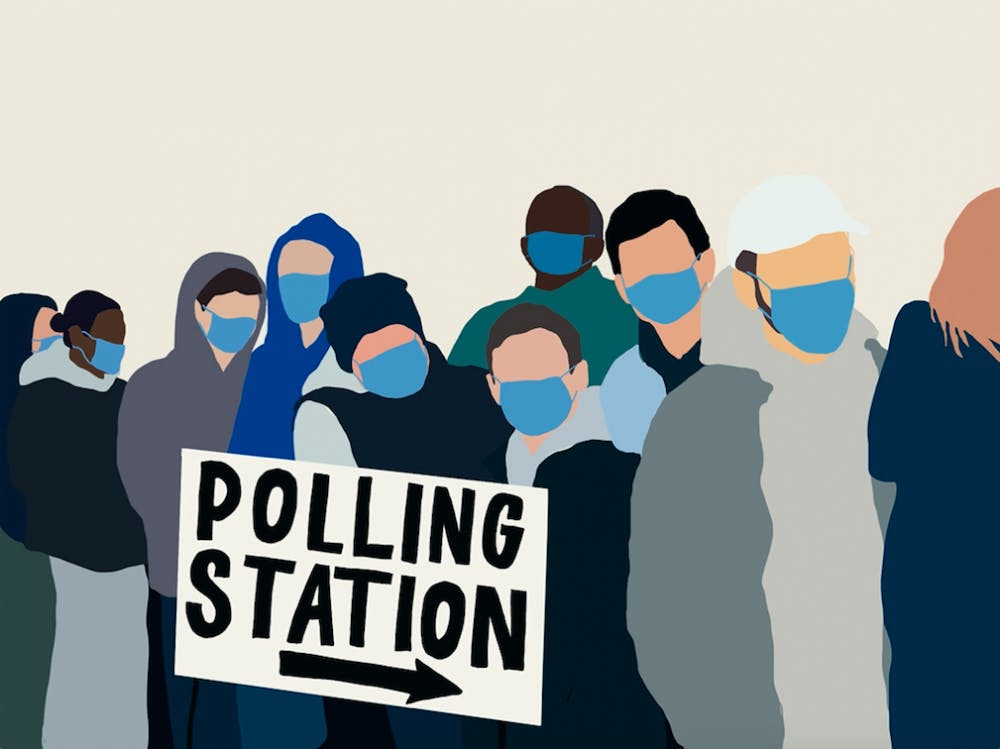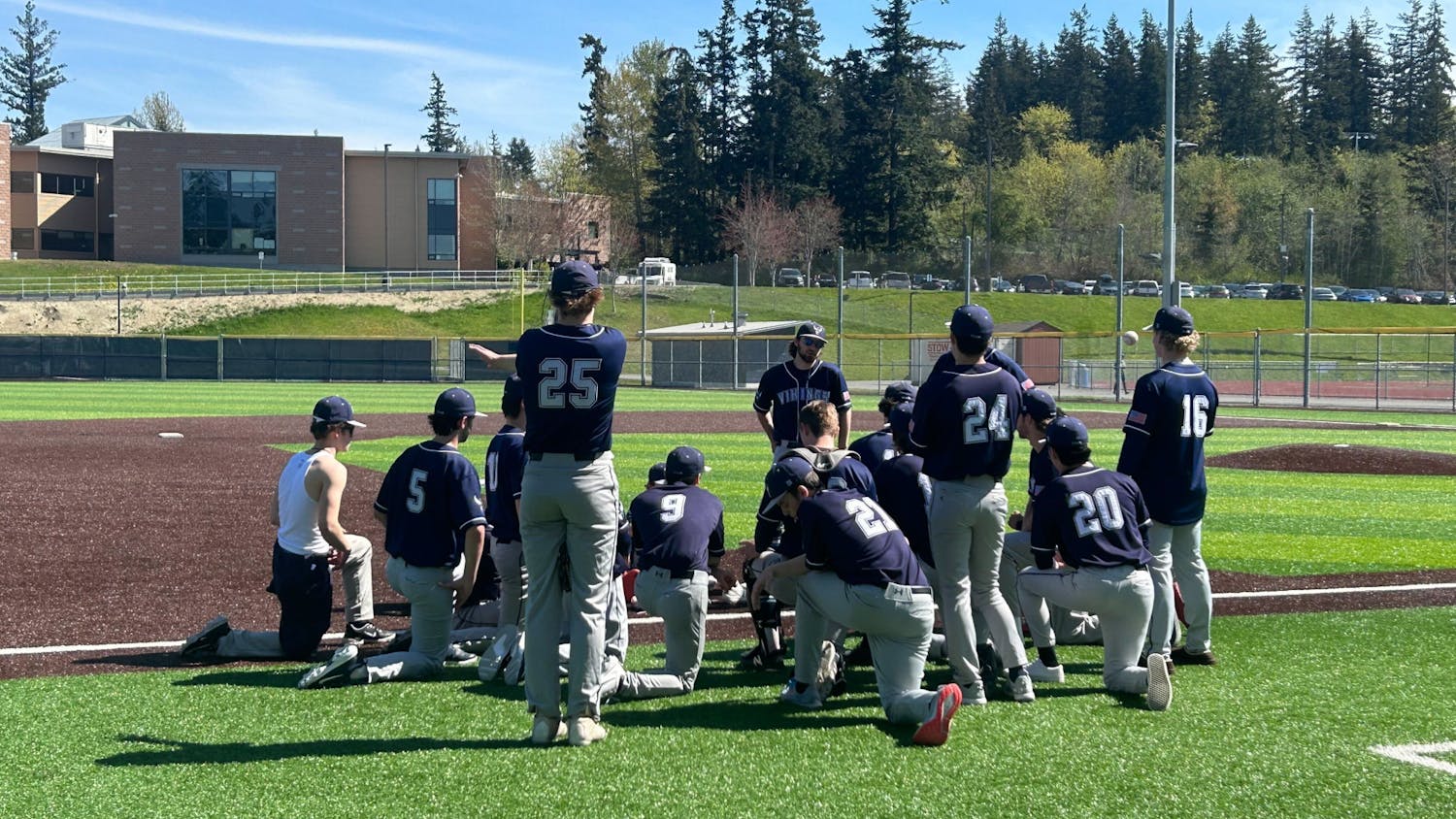
Primary elections pushing forward despite COVID-19 is putting voters at risk
Opinion
By Payton Gift
The impact of COVID-19 has changed a lot of the ways people in the United States live their day-to-day lives. Why didn’t it change the way we vote?
According to the White House’s official website, the president declared the COVID-19 outbreak to be a national emergency on March 1. This was due strongly to its high infection rate and the deaths that corresponded with the virus.
Every state that held a primary election instead of a caucus was scheduled to vote either on or after March 3, according to information from the Federal Voting Assistance Program’s website. If voting began after COVID-19 was a known threat to the public, leaders should have taken every action they could to protect voters.
With elections continuing as the COVID-19 pandemic worsened, many citizens were forced to choose between their health and performing their civic duty.
Demand the Vote is an organization dedicated to helping citizens navigate the voting process. Their website describes voter suppression as “any effort, either legal or illegal, by way of laws, administrative rules, and/or tactics that prevents eligible voters from registering to vote or voting.”
The National Conference of State Legislatures stated on their website that 26 states currently allow some form of mail-in-voting, with Washington, Hawaii, Oregon, Utah and Colorado performing all elections by mail.
Wisconsin Gov. Tony Evers declared a “Safer at Home” order on March 24 to be in place for 30 days. However, Wisconsin continued to hold in-person voting for their primary on April 7. This came with backlash from not only Wisconsin voters, but voters across the nation.
Anti-voter suppression organization Let America Vote and political action committee End Citizens United announced a collaboration in response to states, like Wisconsin, risking the safety of their citizens by holding in-person voting.
“This is a voting rights crisis. Americans should never have to choose between their health and their right to vote," said Tiffany Muller, president of Let America Vote. "That’s why Let America Vote is fighting to expand vote-by-mail options and early voting access in addition to urging congress to pass sufficient election preparedness funding. Our elections must continue without risking voters’ well-being and making sure every American has the option to mail in their ballot will guarantee that.”
On April 10, Gov. Jay Inslee tweeted, “In Washington state, we know that voting by mail is the best way to ensure everyone has a safe, secure way to vote. It should be the right of every American across this country.”
Washington held their primary elections on March 10. Inslee declared a “Stay Home, Stay Healthy” order on March 23.
Tara Lee, communications director for Inslee, gathered his comment on this issue.
“Washington state has led the way in vote-by-mail. It has worked very well in our state and I am proud that as an all vote-by-mail state, we have even added pre-paid postage,” Inslee said. “Voting by mail increases access to democracy by making it possible for more people to participate.”
Some leaders argue that allowing mail-in-ballots increases the opportunity for fraudulent votes. President Trump tweeted on April 8 cautioning leaders against this form of voting.
“Republicans should fight very hard when it comes to statewide mail-in voting,” Trump said. “Democrats are clamoring for it. Tremendous potential for voter fraud, and for whatever reason, doesn’t work out well for Republicans.”
Staff attorney at the American Civil Liberties Union of Washington, Breanne Schuster, said that when officials call for social distancing, they must also provide alternative ways to vote.
“There are many forms of voter suppression, like requiring identification or purging votes,” Shuster said. “I think it is super important to make sure we always make voting easy and accessible.”
Schuster also said that voter suppression can look different depending on what state you’re in. Since Washington is a mail-in state, we don’t have to worry about having to vote in-person, but does this alienate people who don’t have a stable mailing address?
For those in states that are still voting in person, voters with preexisting health conditions, that could make them more vulnerable to the virus, will either have their voices silenced or face possible hospitalization. How can state leaders let them make this choice in good conscience?
The president of the Seattle-King County League of Women Voters, Alyssa Weed, said that with the knowledge that COVID-19 was going to prove problematic, local state governments should have taken action sooner. Weed said that the impact of the virus on the ability to hold elections should not have come as a complete shock.
“I think continuing to require in-person voting during a pandemic disenfranchises people who are at-risk,” Weed said. “These are people who are already routinely silenced by our political system.”
This is an important distinction to make when evaluating who is hurt most by unsafe voting environments. Affluent people with considerably strong health most likely will not have much reason to be deterred from exercising their constitutional right. But consider those who may have insufficient healthcare, or none at all, even if they could be considered healthy. Do they want to risk drowning in medical bills if they contracted the virus and needed hospitalization?
“There are people who already don’t vote because of societal barriers,” Weed said. “All of these issues become exasperated during a pandemic.”
If we’re facing these obstacles now with the primary election, local governments need to prepare for the possibility that COVID-19 may impact the general election in November. The thought of still being in the midst of this pandemic into fall may seem like a bleak estimate, but leaders should prepare for the worst even if it isn’t likely.
Yuliya Tverdova, a professor of political science who specializes in comparative politics at Western, said that the U.S. could likely face the same hurdles for voting in November that we are currently met with now.
“Right now, the battle seems to be over the increase in using absentee voting and mail-in voting,” Tverdova said. “Republicans, and especially President Trump, believe that vote-by-mail would necessarily hurt them, but the actual empirical research shows much less evidence that this is the case. Vote-by-mail may not necessarily lead to high turnout, and higher turnout may not necessarily benefit Democrats, as some Republicans believe.”
Tverdova said the research she was citing came from an article titled “Estimating the Electoral Effects of Voter Turnout” by Thomas Hansford and Brad Gomez.
Board member of the Whatcom Peace and Justice Center, Matteo Tamburini, said that this pandemic could have multiple outcomes in the general election.
“One is that we move to a nationwide vote-by-mail system, which could possibly be a slight improvement on our current system,” Tamburini said.
Tamburini said the president could also possibly take actions that would lead to further voter disenfranchisement. He said we must look for the potential for both positive and negative outcomes, and figure out how to best support the positive ones.
Placing barriers between voters and voting won’t make our democracy any stronger. Elections and our right to participate in them must be protected especially during this pandemic. Ensuring voters can stay safe, as well as be heard, should be the top priority of our leaders.





